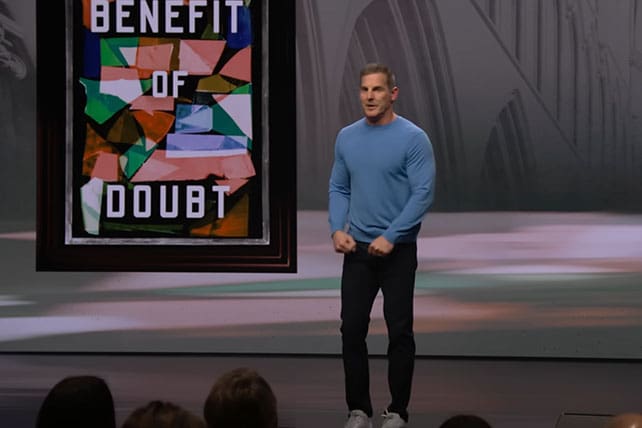A Third Way Forward
When faced with unanswered questions, many Christians feel they only have two choices:
-
Deny their faith and walk away from God.
-
Deny their questions and hide their struggles.
But Habakkuk shows us another way—bringing doubts honestly to God while continuing to seek Him.
Groeschel broke down Habakkuk’s short book into three stages many believers experience:
-
Chapter 1: Wondering – asking God why He hasn’t acted.
-
Chapter 2: Waiting – living in the tension of silence and delay.
-
Chapter 3: Trusting – choosing to rejoice in God, not because circumstances changed, but because of who He is.
As Habakkuk declared, “Though the fig tree does not bud and there are no grapes on the vines… yet I will rejoice in the Lord, I will be joyful in God my Savior” (Habakkuk 3:17-18).
RELATED: Can Worship and Doubt Coexist?
Doubt Can Deepen Faith
Groeschel admits his own moment of doubt didn’t vanish instantly. But when he stepped up to preach about Jesus anyway, the doubts began to fade, and his faith grew stronger.
He emphasized that asking questions doesn’t make someone a weak Christian. It makes them human—and often leads to a deeper, more meaningful walk with God.
“Sometimes real faith isn’t found in having all the answers,” he said, “but in not letting go of God.”
For believers wrestling with questions today, Groeschel’s encouragement is to keep bringing those doubts to God. He is big enough to handle them. And in the struggle, faith often becomes more resilient, not less.

